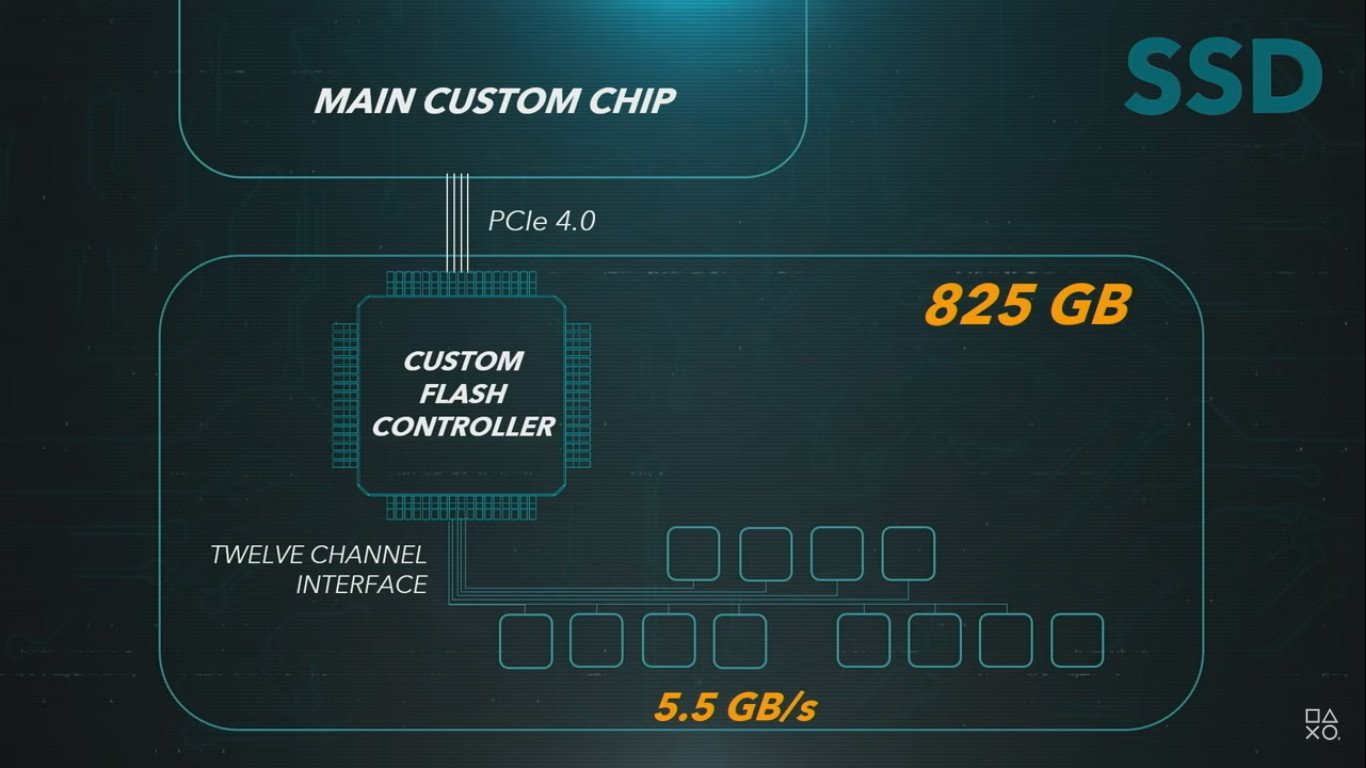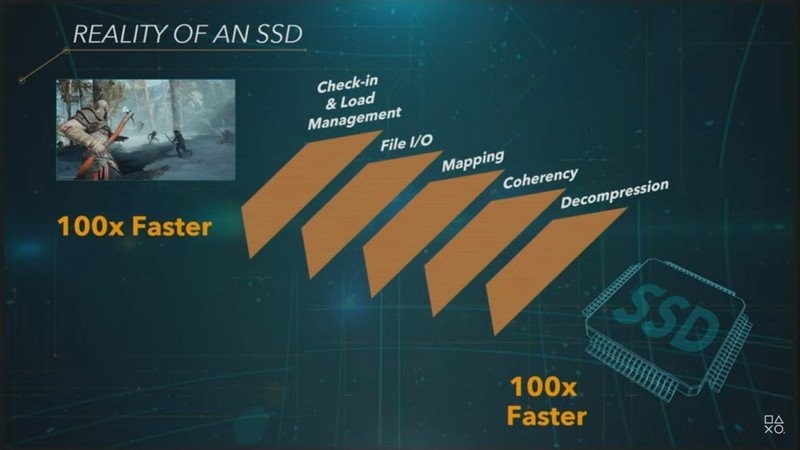The PS5's already-powerful GPU is overshadowing the wicked fast — and far more important — SSD

It's easy to imagine the arguments that arose from Xbox and PlayStation fans alike over which console was better. All of it effectively boiled down to this: "My console is better than yours because it has more teraflops." It's a dumb argument that fans the flames in the everlasting and tiring console wars. I was sick of it then and I'm sick of it now, especially because we should be focusing on other aspects of the upcoming console generation.
For anyone unaware, GPU power is largely measured in teraflops, which is how many floating point operations per second it can perform. Even more simply, a higher teraflop number means visuals can be rendered and manipulated faster. This means you'll see more realistic lighting effects thanks to ray tracing capabilities and the consoles can deliver life-like visuals. It's cool, but also not the most interesting part of the PS5, in my opinion. Instead, what I'd like to draw attention to is the sublime solid-state drive (SSD) the PS5 seems to be packing.
PlayStation systems architect Mark Cerny called the SSD the "key to the next generation" and a "game changer," and he's right. Developers have been asking for the PS5 to have an SSD, according to Cerny, for a good reason. It allows developers to create larger, more dynamic worlds while nearly eliminating load times.
I'd like to draw attention to the sublime SSD the PS5 seems to be packing.
The PS5 SSD is targeting read times of 5 GB/s with instantaneous seek times. This means that it can instantly find where specific data is stored on a disc and read 5GB of this data every second. For comparison, the PS4's HDD seek time is about 2 to 50 milliseconds, and it's bandwidth is only a mere 50 to 100MB/s, a far cry from what the PS5 aims to achieve. However, it's worth noting that because data is stored on flash-memory chips and an SSD has no moving parts, the term 'seek time' as it would apply to an HDD is moot.
Where the PS4 could load 1GB of data in 20 seconds, the PS5 can load 2GB in .27 seconds (in perfect conditions). Games running on PS5 could potentially boot up in a second, reload assets in a second, and virtually eliminate load screens as we currently experience them.

You think that's amazing? Because that's only the tip of the iceberg. As Cerny says, this isn't only about fast load times for players. An SSD can drastically improve the game worlds that developers are creating, giving them more freedom than ever. Level designers have meticulously made entire cities in the past based entirely around your character's movement speed and line of sight versus what assets could realistically be loaded on-screen at the time.
An SSD can drastically improve the game worlds that developers are creating, giving them more freedom than ever.
When running games off of an HDD, developers would sometimes group data together into ways that made it faster for the HDD to read it, but also increased storage because data would then be duplicated several times over. This is a big reason why games take up so much space on your hard drive nowadays. Limitations like this have led developers to think outside the box and creatively hide loading screens in "gameplay" sections like elevator rides, for example, but it was never an ideal scenario.
Get the latest news from Android Central, your trusted companion in the world of Android
As you can see, using an HDD fundamentally changes a game's design. With an SSD, developers won't be limited by these constraints anymore.
The custom 825GB NVMe SSD in the PS5 is notably less than that of the 1TB SSD in the Xbox Series X, but Sony has a reason for this. This number is apparently the most optimal match for the 12-channel interface, and Cerny says that it affords Sony more freedom to adapt its design.
The talk that Cerny gave, originally meant for GDC before its cancelation, is a bit dry, but it provides a lot of insight into how the PlayStation 5 will benefit from an SSD. I highly encourage people to give it a watch if only for that part of the talk, even if some of the technical jargon goes over your head.
The PlayStation 5 is due out Holiday 2020. Industry analysts have speculated that it could be delayed due to production difficulties amid the COVID-19 outbreak, but Sony has not made any indications publicly that the PS5 may be pushed to 2021. Even if it isn't eventually delayed, I'd expect some supply shortages.

Jennifer Locke has been playing video games nearly her entire life. You can find her posting pictures of her dog and obsessing over PlayStation and Xbox, Star Wars, and other geeky things.

